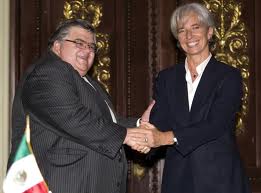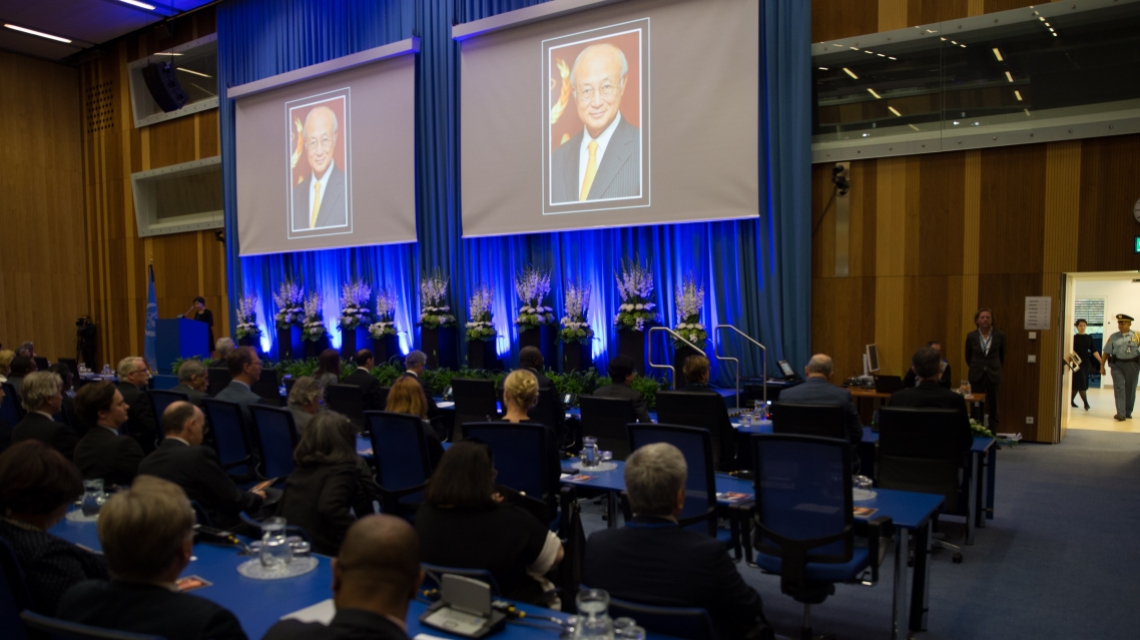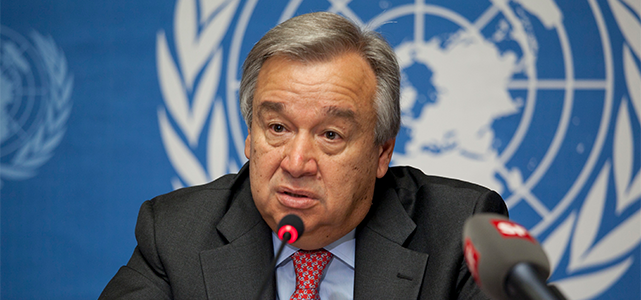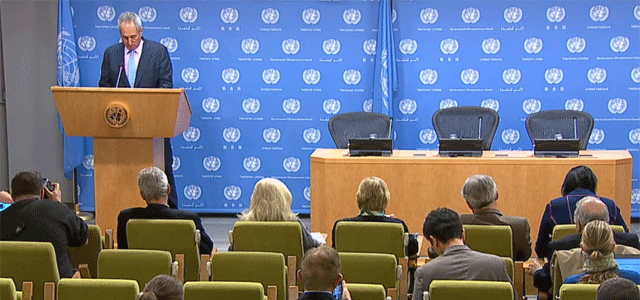In the previous post, I gave a general summary of the selection process for the IMF’s top executive in which the organization is currently engaged. It’s only been a little over two weeks since the former Managing Director was arrested in New York and subsequently resigned. Here is a brief summary of events since, in the context of the how the selection process will work this year.
- Following the election of Dominique Strauss-Kahn (of France) in 2007, many European officials expressed an openness to the next MD not being European. Following Straus-Kahn’s arrest and resignation last month, however, those same officials quickly insisted that only a European should be considered for the post, suggesting that the euro crisis could only be addressed by a European at the head of the Fund. Not a few observers pointed out the hypocrisy of this rationale.
-

Mexico's Finance Minister Carstens poses with France's Finance Minister Lagarde after a news conference in Mexico City. (Photo: Reuters) To date, only two candidates have been formally nominated – French finance minister Christine Lagarde and Mexican central bank governor Agustin Carstens. Many European governments expressed support for or even endorsed Lagarde prior to the official opening of nominations, to the consternation of governments urging a “truly transparent, merit-based and competitive process” as it has apparent effect of locking out a viable candidacy of any non-European nominee.
- Both Lagarde and Carstens have started visiting key governments in hopes of securing support.
- In contrast to the multiple endorsements by European countries for Lagarde, Carstens has only secured the public endorsement of Spain, and this was only due to the fact that the Executive Director representing Spain is from Mexico. In endorsing Carsten, the government explicitly noted that it actually preferred Lagarde.
- Lagarde is considered almost certain to be elected, for the most part because emerging economies have failed to unite behind a single candidate. Brazil, for example, has refused to endorsed its regional neighbor’s nominee and is in fact strongly expected to vote for Lagarde. South Africa is reserving the right to nominee its own candidate, as may other governments, and Kazahkstan (along with Russia and other CSI states) have announced they willnominate Kazahkstan’s central bank governor Grigory Marchenko.
- Nominations will close on June 10, with any shortlisting completed within seven days. The Executive Board will then meet with the short-listed candidates. Afterwards, the 24-member Board will elect the new Managing Director by consensus, resorting to formal voting only if necessary.
- Though allowed to nominate candidates, representatives of individual states on the Board of Governors will have no say in the final selection. Kazakhstan, like many members of the Fund, will just have to settle for whomever its Swiss representative on the Executive Board feels Kazakhstan should be supporting, even if Kazahkstan nominates its own candidate for the post.
Admittedly, this is not a short tutorial, but hopefully offers the non-wonks out there a basic grasp of the process, the people in charge, and generally how this year’s process is unfolding.
Any questions?




